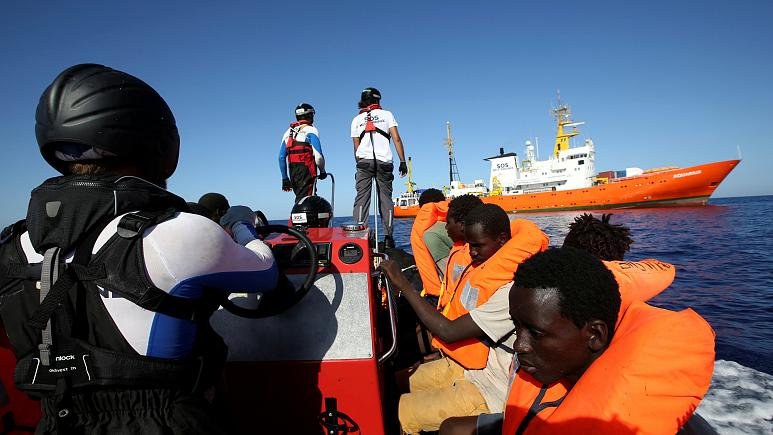In this brief article we will tell you how to obtain refugee status, what are the requirements and answer some frequently asked questions about this topic. At the end, you will be able to get a consultation with our immigration lawyers who will help you in this complex process.
What is refugee status?
Refugee status is a protection given to people who have been forced to flee their country due to persecution, conflict, or violence. It is a form of legal protection that ensures the person will not be returned to their home country and will have access to basic rights, such as food, shelter, and healthcare.
People who are seeking refugee status must go through a process to determine if they meet the criteria set by the United Nations High Commissioner for Refugees (UNHCR). This process includes submitting an application and providing evidence that they meet the definition of a refugee.
What rights do refugees have?
Refugees have a number of rights, including:
- The right to seek asylum in another country
- The right to protection from refoulement, or being sent back to their home country
- The right to be protected from persecution
- The right to have their case considered fairly
- The right to education and work
- The right to social assistance
- The right to health care
What are the challenges for refugees?
There are a number of challenges that refugees face, including:
- Finding safe and legal pathways to asylum
- Facing discrimination and xenophobia
- Lack of access to education and work opportunities
- Limited access to health care services
- Social isolation and loneliness
As the world deals with the largest refugee crisis since World War II, it is important to understand what refugee status is what rights refugees have. Refugees are people who have been forced to leave their homes due to violence, persecution, or war. Countries giving refuge are not obligated to do so. People seeking refugee status must go through a process that is determined by the United Nations High Commissioner for Refugees (UNHCR). They must provide evidence that they meet the definition of refugee in order to be eligible for protection.
How to apply for refugee status in the United States?
In order to apply for refugee status in the United States, one must go through the U.S. Citizenship and Immigration Services (USCIS). This can be done by submitting an application, such as the I-589 form. There is also a fee associated with this process.
The USCIS will review the application and decide if it meets the criteria for refugee status. If it does, they will contact UNHCR to begin the process of resettlement.
If the application is denied, the person has the right to appeal the decision.
What requirements and documentation do I need to submit the application?
There are a number of requirements and documentation the applicant must submit as part of an application for refugee status. These include:
- A completed application form
- Proof that you fear persecution in your home country because of your race, religion, nationality, political persuasion or membership in a particular social group
- Information about where and when you entered the United States and any previous immigration records
- Names and addresses of individuals that might be able to help you find refuge in another country
- Names and contact information for people who can verify your statements during the interview with USCIS officers.
How does the refugee process work?
The refugee process usually takes about 18-24 months. The steps involved are:
- The application is submitted to USCIS
- USCIS makes a decision on the application
- If approved, UNHCR is contacted to begin the resettlement process
- Refugees are interviewed by USCIS officers
- If they pass the interview, they are medical screened
- They attend cultural orientation classes
- They are matched with a sponsor family or organization
- They are resettled in the United States.
What services are available to refugees?
Refugees have the right to health care and social services. This includes:
- Medical screening and treatment
- Refugee cash and medical assistance programs
- English language classes
- Job training and placement services
- Outreach services for women, children and victims of torture
Are there any special provisions for unaccompanied minors?
There are a number of special provisions made for unaccompanied minors who seek refugee status. These include:
- Special considerations during the interview process
- The opportunity to apply for asylum even if they are not from a country designated as particularly dangerous
- Eligibility for benefits such as public education, vocational training and cash assistance
- A fast-track process for resettlement.
Are there limits on the number of refugees?
The United States has a limit on the number of refugees who can be admitted into the country. This number is set by the president and can change from year to year. For fiscal year 2018, the cap was set at 45,000. In 2020, former President Trump determined that up to 15,000 refugees would be admitted in 2021, the lowest number in history.
Can I work as a refugee?
Most refugees are required to apply for an Employment Authorization Document (EAD) within their first 30 days of arrival. This document allows the refugee to work legally in the United States with conditions. Refugees are authorized to work after they have been assigned a social security number that has been verified by USCIS.
Can I apply for permanent residency or Green Card as a refugee?
Yes, refugees can apply for permanent residency or a Green Card after they have been in the United States for one year. They must meet the same requirements as any other applicant. This process usually takes about five years.
What if my application is denied?
If an application for refugee status is denied, the person has the right to appeal the decision. They can also reapply if there is new information or evidence to support their case.
What is the process refugees must follow if they want to repatriate?
The United Nations defines repatriation as “the return of refugees and displaced persons voluntarily, in safety, and with dignity.” The United Nations High Commissioner for Refugees will continue assistance to those who wish to return home through reintegration assistance packages while continuing resettlement assistance for refugees who do not want to return home.


